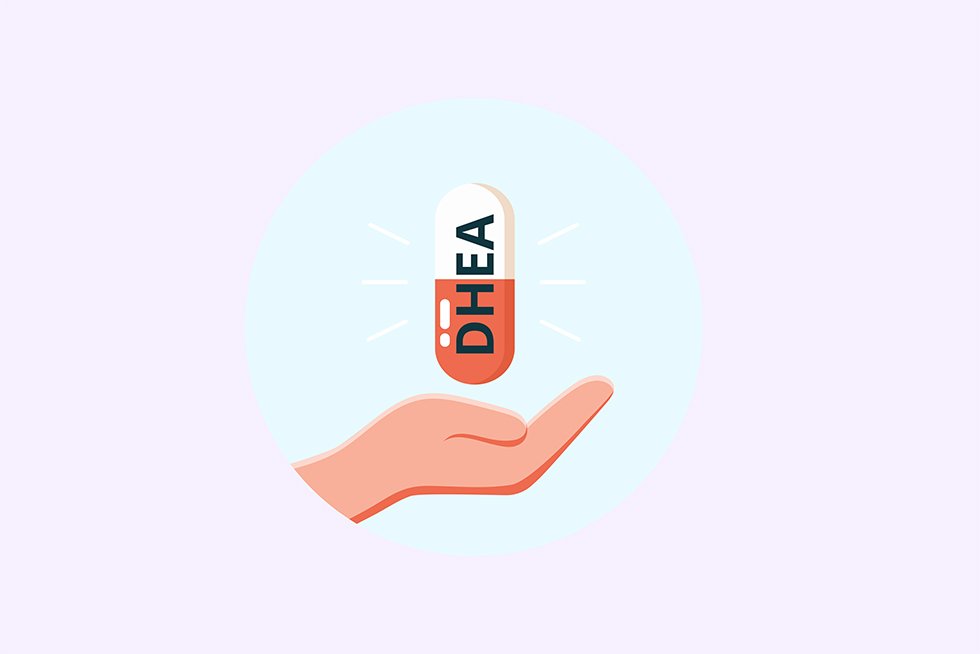DHEA, Pregnenolone and Human Growth Hormone – The Mystery Hormones


What are these hormones and what do they do in your body?
DHEA and Pregnenolone are precursor hormones. This means that cholesterol makes pregnenolone-the mother hormone, which makes DHEA, which makes oestrogen, progesterone and testosterone, amongst other adrenal hormones (cortisol, aldosterone). So problems or deficiencies in the making of these hormones can lead to problems with the hormones that we are familiar with; namely oestrogen, progesterone, testosterone and stress hormone cortisol. DHEA is better known and many people know a little about it. It is even used in higher doses for fertility in women. Pregnenolone is not well researched and a lot more needs to be done. It is known as the ‘brain’ hormone as that’s one of its main function.
Problem making these hormones could be anything from nutritional deficiencies (remember that vitamins and minerals enable reactions to take place) to very low cholesterol (cholesterol is a building block), to problems with enzymes that help these reaction take place smoothly. Many of these problems are easy to handle eg good diet and supplementation. Then of course there’s ageing, which causes a gradual decline over the years.
Human Growth hormone (HGH) is the ‘wear and tear’ hormone. It starts to decline from around 21 years of age. It gets its bad reputation from its use as an anabolic steroid (decrease fat mass but builds muscle mass) where it has been abused by ‘underground’ gym users and competitive sports people. This is due to the obvious advantage it confers to these people. There are also fears regarding its potential to increase growth of existing tumours within the body. This doesn’t make a lot of sense to me as we have large amounts of GH in our teens and twenties (but low levels of tumours) and this switches the older we age ie less GH but more tumours in older people. Of course its not that simple as many other factors come into place. There have been a few studies on this subject, which a quick google search will uncover.
DHEA
it shifts the body to an anabolic or protein building state
It increases visceral (surrounding your organs) fat burning
Its an anti-depressant and improves mood
Improves sexual function and vitality
improves memory
increases energy
enhances the immune system
reduces insulin requirements
increases bone density
Pregnenolone
its a memory enhancer and cellular repairer
particularly important for neuronal cellular repair (brain)
improves ability to acquire knowledge
improves long term memory
as a precursor to steroid hormone cortisol, it supports functions where synthetic steroids are required, and in cases of adrenal burn out.
Human Growth Hormone (HGH)
increase metabolism
better immune system
improves cell repair and overall tissue regeneration
increase muscle mass and decreased fat mass
increase energy and endurance
increased libido
better recovery after injury
better skin
Should we be replacing them? This really depends on one’s view. The same question can be asked of regular HRT (oestrogen/progesterone), testosterone and other hormones like thyroid, insulin etc. Who gets to decide which hormones should be replaced and which ones shouldn’t? Its not an easy question and there is no easy answer. Again, this blog’s intention is for you to question things and to inspire you to ask more questions, research more and come from a position of strength when attempting to answer these questions for yourself.
Read more about testosterone and Testosterone Replacement Therapy (TRT) here.
If you have any questions about treatment with the hormones we’ve discussed here please don’t hesitate to call our friendly admin team on 020 7096 5475. Alternatively, you can book an appointment online by clicking the button below.